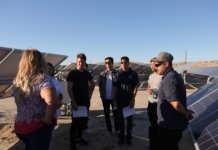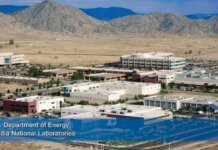The Department of Energy & Environment (DOEE) and the Department of Employment Services (DOES) have partnered to develop Solar Works DC, a low-income solar installation and job training program in Washington, D.C.
To implement the first year of the program, DOEE and DOES have awarded $950,000 to GRID Alternatives Mid-Atlantic through a competitive grant process.
With this funding, GRID, a nonprofit solar installer, will operate a year-round program to train Washington, D.C., residents in solar installation. The program aims to train more than 200 district residents and install solar systems on up to 300 low-income, single-family homes over three years.
Under the Renewable Portfolio Standard (RPS) Expansion Amendment Act of 2016, Washington, D.C., has a goal of increasing its RPS to 50% and providing solar energy for 100,000 low‐income residents by 2032.
“Solar Works DC underscores Mayor Bowser’s commitment to inclusive prosperity and her continued leadership in supporting our growing green economy while working to meet our climate change commitments,” says Tommy Wells, DOEE director. “Our partnership with DOES creates a clear pathway for district residents to receive the training and skills needed to gain employment in the rapidly growing solar industry.”
Solar Works DC will operate three cohorts throughout the year (summer, fall and spring). The summer cohort will comprise DOEE Green Zone Environmental Program participants who are also participating in DOES’ Mayor Marion S. Barry Summer Youth Program for a six-week program (ages 18-24). The spring and fall cohorts will be made up of residents ages 18 and older for a 12-week program.
“A local, qualified workforce is imperative to implement the district’s RPS, and this program connects D.C. residents to sustainable careers in this growing clean energy economy,” says Nicole Steele, executive director of GRID Alternatives Mid-Atlantic. “The partnership between DOEE, DOES and GRID not only creates high-growth career pathways in our most vulnerable communities but also reduces the energy burden faced by so many low-income families.”




